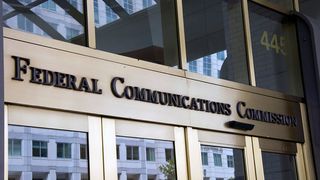McCaskill Pushes Pai For Action on Cable Contracts

Veteran cable critic Sen. Claire McCaskill (D-Mo.), ranking member of the Senate Permanent Subcommittee on Investigations, wants FCC Chairman Ajit Pai to limit "overly restrictive" alternate delivery method (ADM) and unconditional most-favored-nation clauses in programming contracts.
The FCC, over Pai's objection, proposed to do just that in a Notice of Proposed Rulemaking (NPRM) last September stemming from an inquiry last year into program diversity.
In a letter, McCaskill said that the committee's investigation into programming practices, based on documents from "many of the largest cable and satellite providers" and interviews with distributors and networks, she concluded that the clauses may be limiting consumer choice, and said based on that investigation, limiting them "will succeed in removing these obstacles and facilitate competition in an industry increasingly dominated by a few large companies.
Pai is unlikely to agree, given that he views the marketplace as competitive and the effort to limit the clauses as an attempt by the FCC to exact regulatory tribute and give itself “carte blanche to regulate programming contracts."
McCaskill conceded the committee had only reviewed some contracts, and used "may" throughout, rather than "will" when talking about the potential harms. She also talked about limiting the contracts rather than banning them.
Smaller operators argue that the FCC should finesse its rule proposal to apply the prohibitions only on larger players who have the market power to make the contract terms anticompetitive.
"The rule proposed by the FCC is a much-needed step that may help level the playing field for small and new programmers," she said.
Multichannel Newsletter
The smarter way to stay on top of the multichannel video marketplace. Sign up below.
Pai, joined by fellow dissenter Commission Michael O'Rielly, argued when the NPRM was voted last September that limiting the contracts could actually hurt independents by making MVPDs less likely to strike deals with them.
They pointed out that MVPDs were under no obligation to carry independent channels.
"We have to consider whether banning unconditional MFN and certain types of ADM provisions would make it less likely that independent programmers would be able to secure carriage by MVPDs," said Pai. "Would banning such contract terms make it more likely that those independent programmers already being carried by MVPDs would be dropped? Or would prohibiting such provisions make it more likely that a large MVPD would insist on exclusive deals with independent programmers, thus limiting these programmers’ reach? Unfortunately, it is evident from the Notice that the Commission has already fixed upon an answer before the record has been compiled."
Daphna Ziman, president of independent programmer Cinémoi, who testified at the FCC and before Congress in favor of the FCC's proposal, says she is planning to invite legislators and FCC members to a summit on the issue in Washington "in the hope that we can develop bipartisan solutions to the problems to save our industry."
A spokesman for the chairman was checking on the status of their receipt of the letter, which was dated Feb. 6, at press time, but traditionally the only comment is that they have received it and are reviewing it.
Contributing editor John Eggerton has been an editor and/or writer on media regulation, legislation and policy for over four decades, including covering the FCC, FTC, Congress, the major media trade associations, and the federal courts. In addition to Multichannel News and Broadcasting + Cable, his work has appeared in Radio World, TV Technology, TV Fax, This Week in Consumer Electronics, Variety and the Encyclopedia Britannica.

